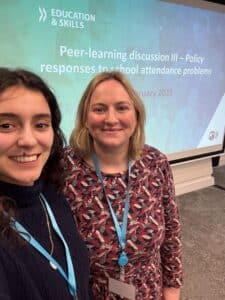Dublin City University and the United Nations have established a “global partnership” to tackle bullying in schools and cyberspace.
UNESCO, the United Nations Educational, Scientific and Cultural Organisation, have agreed to establish a Chair at DCU in a major international research collaboration aimed at tackling the growing phenomenon of bullying in schools and cyberspace.
The UNESCO Chair on Tackling Bullying in Schools and Cyberspace, which will initially run for four years, will involve researchers and academics in Ireland and across the globe working together to document incidents of bullying and violence in schools and the widespread harm associated with cyberspace bullying, particularly among young people.
The work of the new Chair will include measuring the international extent of bullying and the development of a set of measures aimed at preventing bullying and providing teachers, educationalists and parents with guidelines on how to intervene to prevent harmful practices arising in the school environment. It will also deliver a range of reports on bullying and associated recommendations over the four years of the initiative.
This is the latest in a series of initiatives underlining DCU’s commitment to research excellence at an international level.
Announcing the designation, President of Dublin City University, Professor Brian MacCraith said:
“This agreement is a significant development reflecting a concerted global effort to combat the harm caused by bullying in schools and bullying in cyberspace.
The Chair will facilitate high-level collaboration on this issue between internationally recognised researchers and academics from Ireland and across the world, enabling the development of a comprehensive body of research, including interventions, which will have a transformative impact, not only in terms of expanding the knowledge base on this issue but also in the context of providing teachers, educationalists and parents with best practice intervention methods to help combat bullying.
The Chair is very much a reflection of our values to make a transformative impact on lives and societies through research and engagement.”
The agreement to establish this ground-breaking research centre at the university was signed by the Director General of UNESCO, Audrey Azoulay, and the President of Dublin City University, Professor Brian MacCraith.
DCU is already home to a number of internationally-renowned research centres, including the National Anti-Bullying Research and Resource Centre, the Insight Centre for Data Analytics, Vox-Pol, the Institute for International Conflict Resolution and the ADAPT Centre for Digital Content.
